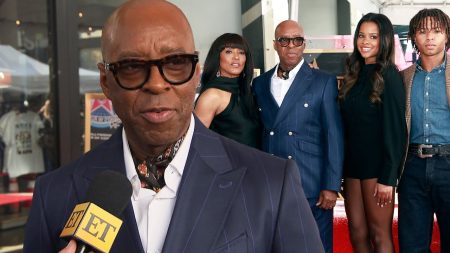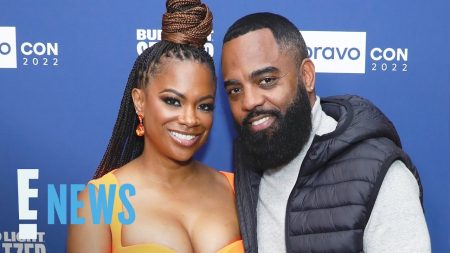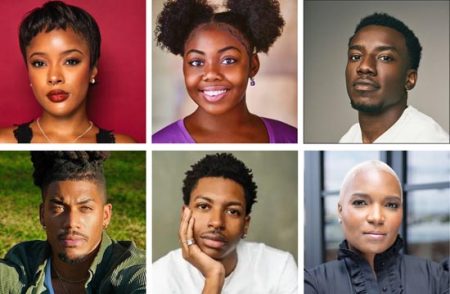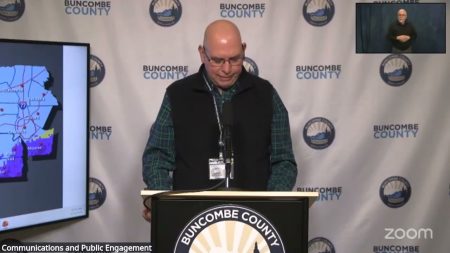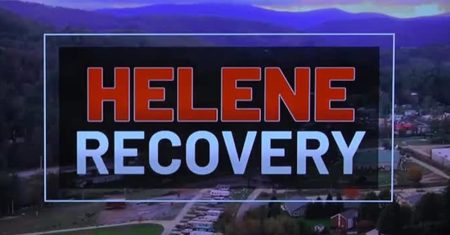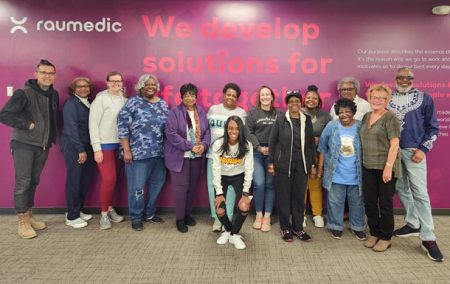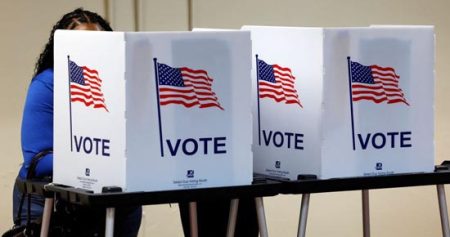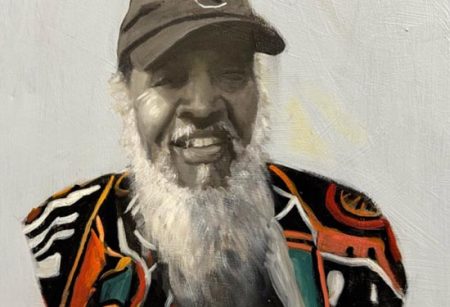Youth & Politics
by T.J. Moore
To try to understand the disconnect between young people and government, the following equation is the general attitude of society: Youth + Politics= Myth.
Statistics seem to support this equation. Since the Twenty-sixth Amendment lowered the voting age to eighteen, voting participation in presidential elections among the 24-and-under age group has dwindled from 52 percent in 1972 to six percent twenty-eight years later. Because state and local elections generally draw far fewer votes than national ones, it’s likely that the drop in the number of voters from 18-24 in these elections is even more pronounced.
“Unfortunately, during the last ten to fifteen years, the numbers show that less young people are voting,” says McDowell High School Young Democrat advisor and Civics teacher Jeff Penley. “We need to rekindle interest.”
The
results of the 2005 election, in which only municipal offices were at
stake, suggest that Buncombe County officials and activists are doing
their part to interest younger voters. According to the Buncombe County
Board of Elections, in the 2005 local election, there was a 100 percent
increase in voter turnout for ages 18-40.
Asheville City
Councilman Bryan Freeborn thinks there is no coincidence in the sudden
rise of political interest among the county’s youth.
“I think young
people are getting more involved in politics because they are seeing
more people running for office who look like them,” he said.
Freeborn, 30,
has a point. Asheville Mayor Terry Bellamy is only 34 years old; she
was first elected to City Council at 27 and gained the Mayor’s seat at
33. Buncombe County Commission Chairman Nathan Ramsey, now in his sixth
year in office, is 38. In addition to those already on City Council,
more young people are filling chairs on boards and planning committees.
This movement reflects an increased interest in public service among
the 40-and-under crowd.
“Here in
Asheville, we have various citizenship and planning committees. We have
to appoint more young people (to gain their interest),” Freeborn says.
“Every appointee we had recently was under 40.”
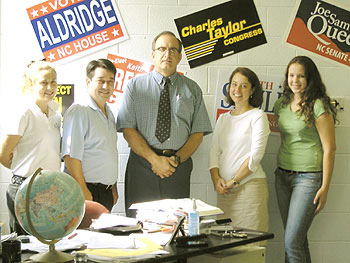 |
| From Left To Right: McDowell High School political club participants: Emma Schuman, Young Republican President; Jeff Penley, Young Democrat Advisor; Bob Yutzy, Social Studies Teacher and Dept. Head; Kendall Waugh, Young Republican Advisor; Allison Bryant, Young Democrat Member. |
At Marion’s
McDowell High School, interest in politics has risen with the formation
of clubs for Young Republicans and Young Democrats. The interest
stemmed from demand by a few curious students. “Last year, a student
asked if I could sponsor the group. There were both clubs (Republican
and Democrat) established at one point in time and they died out due to
lack of interest,” says Young Republican Advisor Kendall Waugh.
The new clubs
are definitely not lacking in enthusiasm, especially from some students
who are raised on politics. “My family’s Republicans and that’s what I
have always known,” says MHS Young Republican President Emma Schuman.
“I wanted to contribute and help out (the Republicans).”
MHS Young
Democrat member Allison Bryant expressed similar sentiment. “Both sides
of my family are staunch Democrats. My grandfather got me involved in
the countywide Young Democrats. I’ve taken my interest to the next
level with the school’s Democrat club.”
While both clubs
have a considerable level of interest, there may be another motive that
is driving the students to join the clubs. Kendall Waugh believes that
she’s been successful in attracting students to the Young Republicans
but she is aware that it may not be strictly for GOP support. “I think
we have been successful in attracting people to the group, but I think
it is more social than Republican views,” she said. Waugh hopes that
her group will not lose focus on the main objective: interest in and
deeper appreciation of the voting process, something she has instilled
in her own children. “With what we are doing here (with the young
Republicans) we will hopefully be making a change,” she says. “My
husband and I vote together and we take our children with us and
explain to them what we are doing and why it is important.”
Despite the
recent interest in politics among the younger voting crowd, they still
fall far behind on the political hierarchy. The “Baby Boom” generation
is currently the largest block of voters. Since this group is the one
that consistently hits the polls, issues of interest to them, such as
Social Security,
Retirement, and Medicare, tend to be the highest
priority of those jockeying for office. With so many politicians
catering to the Boomers, many younger voters feel that their voices do
not matter at the polls and even in office. “I don’t think they (young
voters) are being taken seriously,” says Freeborn. “It takes longer for
a young person serving office to be taken seriously because we are seen
as being too young and immature.”
Another factor
in depressing the youth vote may run deeper than poll turnout. The
voice of the young may be seen as irrelevant due to lack of significant
funds. “Ninety-three percent of politicians win by great fundraising
from sponsors, and young people do not have that influence,” says
McDowell High Social Studies Department Head Bob Yutzy.
While lack of
money and disconnect from Boomers’ concerns are key to understanding
the low interest in politics on the part of young people, another
factor is also relevant, according to Nathan Ramsey: the lack of issues
that directly affect the demographic. “When we had the military draft,
young people were politically active because the draft was a burden for
them. Now, young kids don’t seem to have the same concern,” he said.
So what are the
concerns of the young and politically active? The answers included both
foreign to domestic problems. “Oil costs are a big issue for us (teens)
because we can relate to the price of gas since many of us drive. This
hits more close to home with high school students,” said Shuman.
“I think the war
is an important issue because if it is not a family member overseas. It
is someone that we know. Many of us will vote based on that,” said
Allison.
Whatever the
outlook for the generation as a whole, it’s likely that the Young
Democrat and Young Republican club members at Marion High School will
continue to be engaged in politics. And if Asheville and Buncombe
County voters’ habit of electing young people to office spreads to
surrounding areas, there will be ample opportunity for them to put
their interest into practice.

